7 Custom Software Solutions To Solve Small and Medium Businesses Challenges
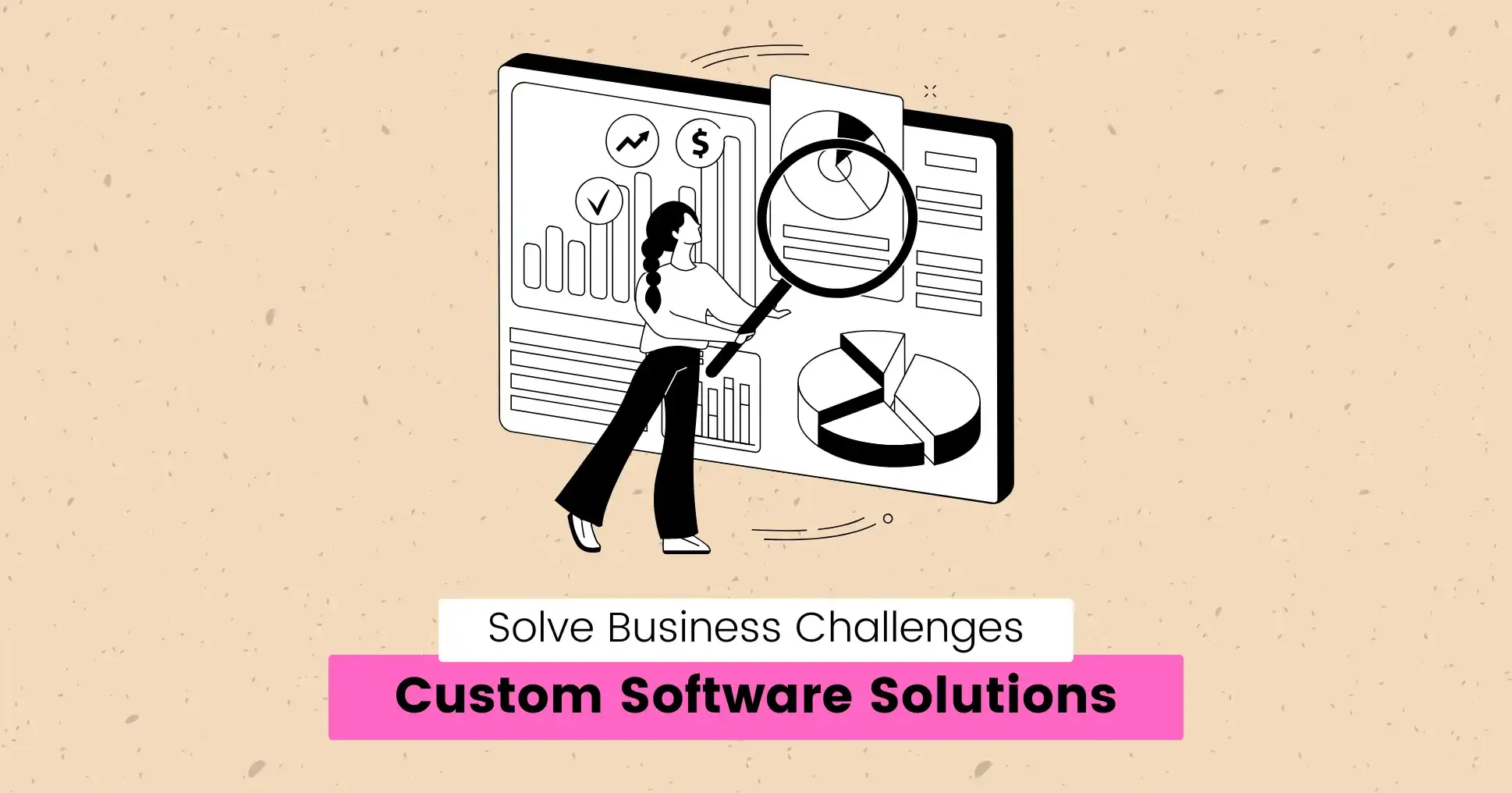
Are you a business owner who finds it difficult to manage day-to-day operations?
Running a small or medium business often involves handling multiple tasks at the same time.
Manual processes, outdated technologies, and disorganized information make it difficult to focus on growth.
These challenges don’t just slow you down; they can cost you valuable time, customers, and revenue.
Customized software solutions can help you solve these problems by designing tools to solve a business’s exact challenge.
They’re built to help your business run smoothly by simplifying workflows and enhancing user experience.
Read this guide to learn about 7 custom software solutions that help solve common business challenges and improve productivity.
Let’s get started.
Why Choose A Custom Software Solution?
Custom software is built specifically for your unique business needs.
Unlike off-the-shelf software, custom solutions are created with the user in mind, addressing specific workflows, requirements, and security concerns.
Think of it like a custom-made suit that fits your business perfectly rather than forcing you to adjust to something generic.
Need Help Evaluating Your Software Options?
Our experts can help you analyze your specific needs and guide you through the decision process. Schedule a free consultation to discuss your requirements and find the best solution for your business.

Custom software development offers several benefits:
- Complete Features: Off-the-shelf software may offer features you don’t require and lacks those you do. For example, specialized software may manage orders, inventory, and schedules all in one. Generic software may only include one or two of these features, forcing you to use many tools.
- Scalability: As your business grows, custom software can expand to accommodate your specific needs. For example, a sales tracking system can be updated to include features like managing online orders or analyzing customer purchasing trends.
- Efficiency: Manual tasks are time-consuming and prone to error. Custom software automates these tasks to save time and eliminate manual effort. For example, a company may use a custom app to book appointments, send reminders, and create invoices automatically.
- Customer Satisfaction: Custom software can help you serve your clients more effectively. When your software performs exactly as you want, with no limits, you can concentrate on improving customer experience.
- Cost Savings: While custom software development services require an initial investment, there is no need to pay the subscription fees and integration costs that come with ready-made solutions.
- Security: Your custom software can address specific security risks unique to your company. It can include strong encryption and access control features to protect sensitive data that off-the-shelf solutions may not offer.
7 Types of Custom Software for Small Businesses
Here are some popular types of customized software development solutions that you can use in your organization to make things easier and enhance productivity.
Customer Relationship Management (CRM) Software
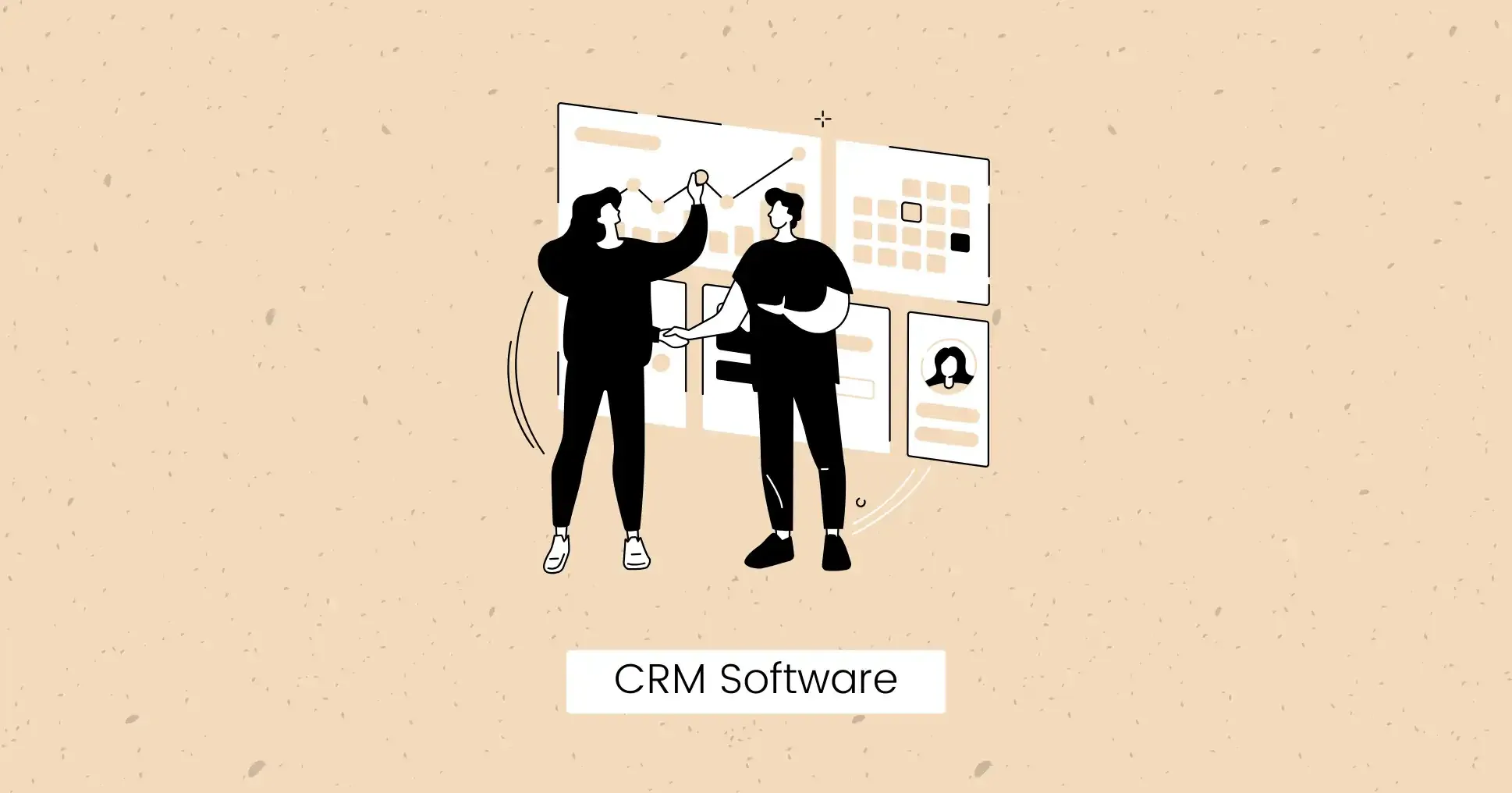
Imagine a digital assistant that keeps track of all your customer-related activities so you can focus on providing better service and expanding your business.
CRM software is intended to help organizations manage and improve customer connections.
It compiles all client information, such as contact details and communication records, in one place.
Key Features:
- Stores all customer details, including names, contact info, and purchase history.
- Makes it easy to access data for personalized service.
- Track potential leads through the sales funnel.
- Email automation like follow-ups, promotions, or newsletters.
- Get insights into user behavior, trends, and team performance.
- Implement cloud CRM solutions to access client information from anywhere.
Benefits:
- Helps businesses make informed decisions.
- Equips teams to offer personalized support and resolve issues quickly.
- Improves team communication.
- Builds trust and loyalty in the client base.
Best for:
- Service-based businesses
- Retail and e-commerce
- Travel agencies
- Banking
- Healthcare providers
Content Management System (CMS)
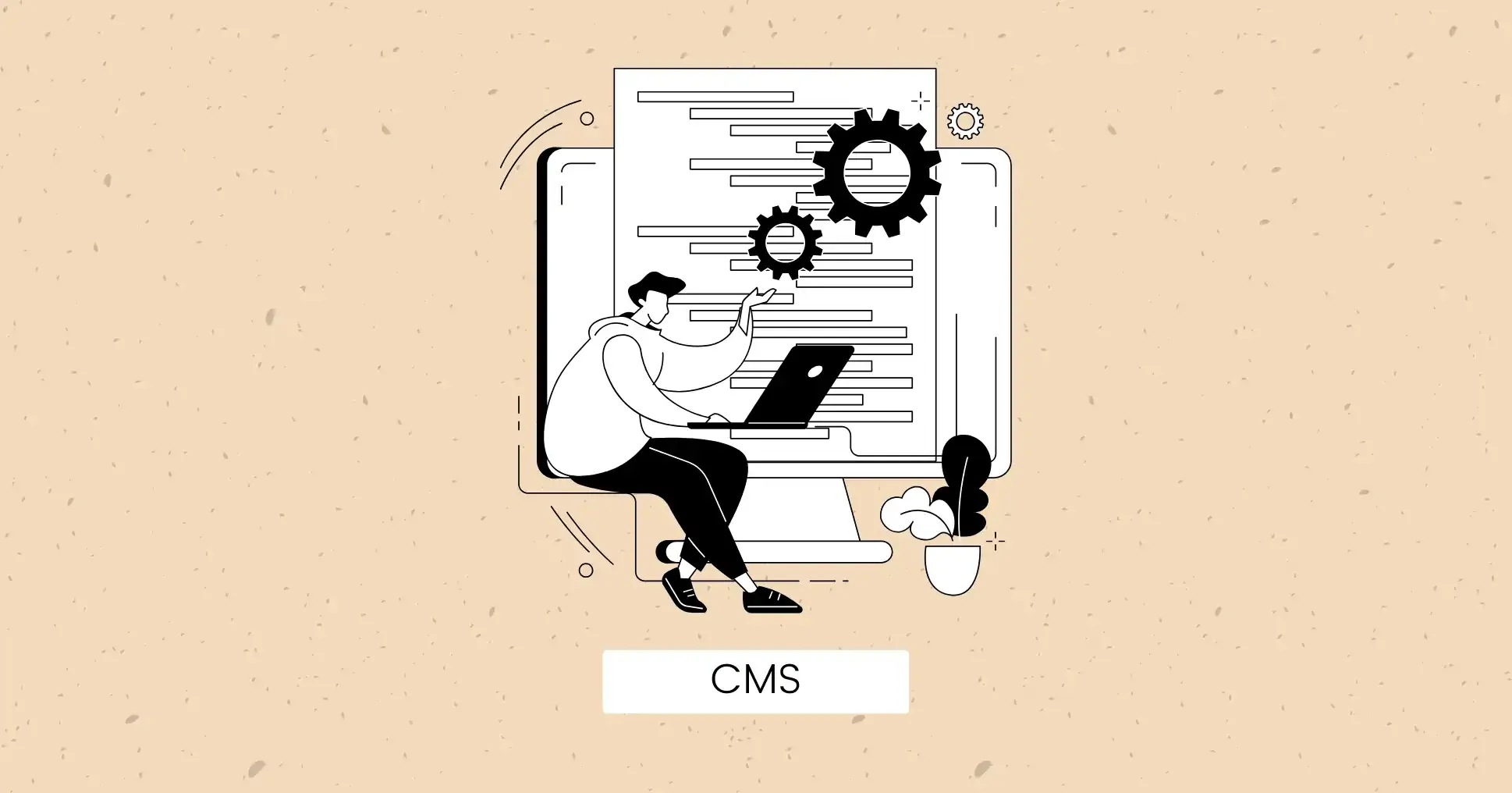
A content management system enables organizations to create and manage content on websites without requiring coding knowledge.
It provides a user-friendly interface, allowing users to focus on their content and business goals instead of worrying about the technical aspects of web development.
Key Features:
- Manage content with drag-and-drop editors or templates.
- Easily create, edit, and schedule content such as blog posts, product pages, images, videos, etc.
- Use built-in SEO tools and responsive design to improve website visibility and search engine ranking.
- Assign roles to team members for more control and security.
- Track website traffic, user behavior, and performance metrics for a competitive edge.
Benefits:
- Great for businesses with limited budgets.
- A centralized dashboard for easy content management.
- Customization through templates, themes, and plugins to reflect brand identity.
- Regular updates and security features.
Best for:
- Blogging and content creation
- Freelance software developers
- Education and training platforms
- E-commerce websites
- Local businesses
Inventory Management Software
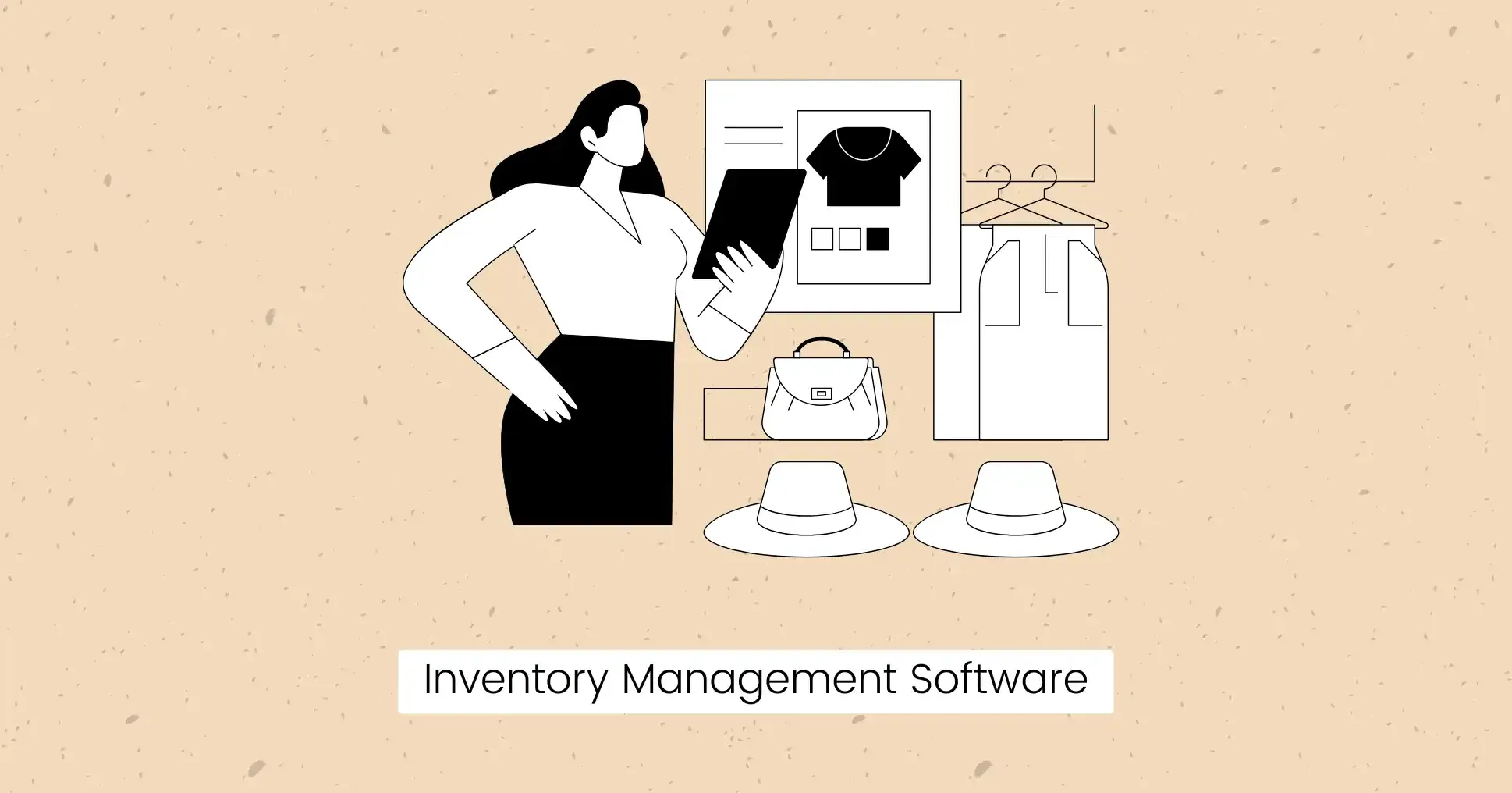
An inventory management software helps businesses track and organize their inventory in real-time.
You don’t have to worry about what stock you have, where it is located, and when to reorder items.
Your custom inventory system will ensure you always have the right stock.
This saves time and prevents costly mistakes like overstocking or losing sales.
Key Features:
- Monitor inventory levels instantly as items are added or sold.
- Get notified when stocks are low or when you need to reorder.
- Track available stock across multiple locations.
- Barcode and scanning to simplify inventory updates.
- Integrate with sales systems like point-of-sale (POS) software to update inventory automatically.
Benefits:
- Replace manual methods like spreadsheets to reduce errors.
- Helps ensure your stock records match reality.
- Reduces storage costs and saves time.
- Allows small businesses to manage inventory from a single location.
Best for:
- Retail stores
- E-commerce platforms
- Pharmacies
- Food and beverage companies
E-commerce Platforms
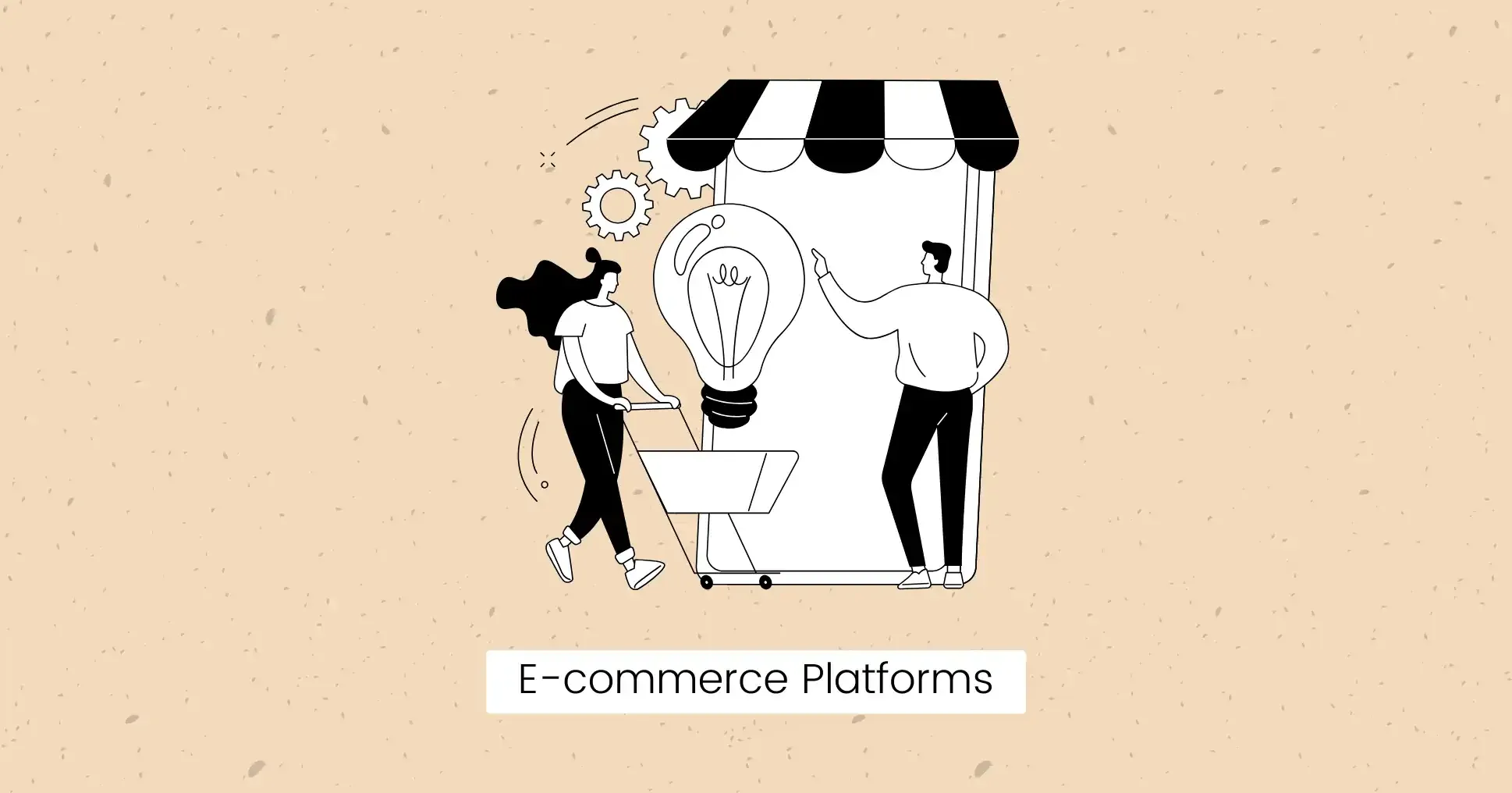
An e-commerce platform is an online store where customers can browse and shop for products or services.
It is a must-have for small businesses looking to increase their online presence.
It covers everything from website design to payment processing so you can focus on scaling your business.
Key Features:
- A single platform to display items, handle payments, manage inventory, and process orders.
- Organize products into categories, filters, and tags for easier navigation.
- Add details like product descriptions, prices, and images.
- Allows customers to create accounts for faster checkout and order tracking.
- Includes marketing tools like email campaigns, discount codes, and social media integrations.
- Integration with payment gateways for safe transactions.
Benefits:
- Cost-effective setup that scales with your business.
- 24/7 availability so your customers can shop anytime.
- Expand your reach to customers worldwide.
- Provide a great customer experience with features like wish lists, recommendations, and user accounts.
- Builds customer trust and loyalty.
Best for:
- Food and beverage companies
- Retail shops
- B2B companies
- Dropshipping business
Learning Management System

A learning management system is a smart choice for organizations looking to simplify employee training or onboard new hires.
It acts as a central hub for creating, delivering, and managing training programs or educational content.
Key Features:
- Create custom courses using text, videos, or quizzes.
- Assign courses to specific users or groups and track their progress.
- Get analytics and reports on performance, completion rates, and time spent on courses.
- Automate tracking, reporting, and certification to save time.
- Access courses on multiple platforms, including smartphones, tablets, or laptops.
Benefits:
- Eliminates the need for in-person sessions or travel expenses.
- Provides high-quality training and interactive learning experience.
- Great for upskilling employees to improve job satisfaction.
- Allows users to learn at their own pace.
Best for:
- Corporate training
- Tech companies
- Healthcare providers
- E-learning business
- Customer education
Data Analytics and Reporting Tools
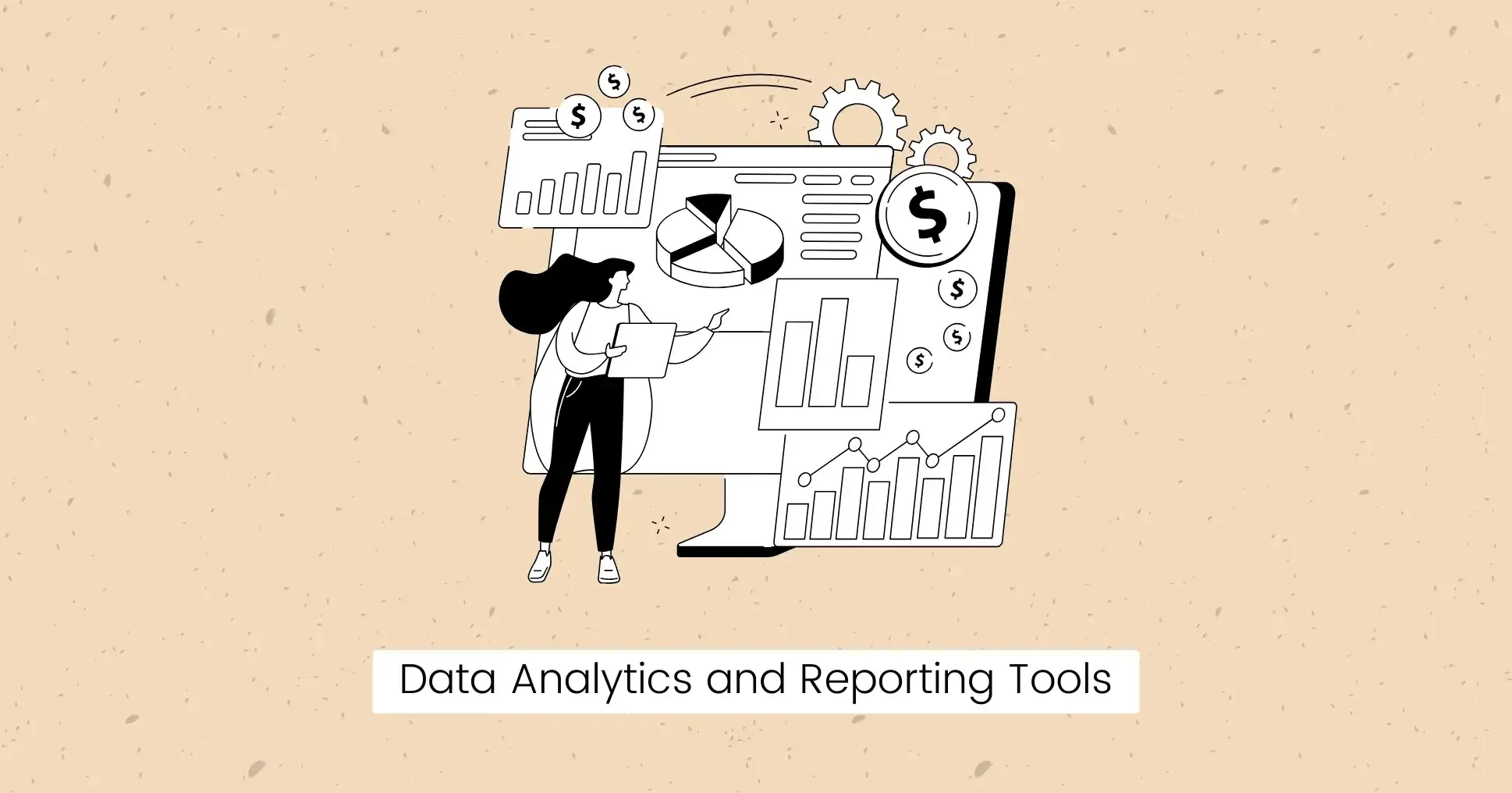
Data analytics tools are essential for small businesses that want to make better, faster decisions.
It collects, processes, and transforms raw data into useful insights to track performance and identify trends and areas for improvement.
Key Features:
- Visualize data through charts, graphs, and dashboards.
- Get live updates so you can respond quickly to changes or issues.
- Highlight key metrics like sales or customer behavior.
- Integrate with accounting, CRM, or inventory software to collect data from multiple sources.
- Use historical data to predict future trends.
Benefits:
- Make informed decisions and identify growth opportunities.
- Automate data collection to save time for other critical tasks.
- Allocate resources more efficiently.
- Find potential problems early, such as declining sales or understocking.
- Understand what works and what doesn’t to cut unnecessary costs.
Best for:
- Online shops
- Customer service
- Tech startups
- Marketing agencies
- Financial services
HR and Payroll Software
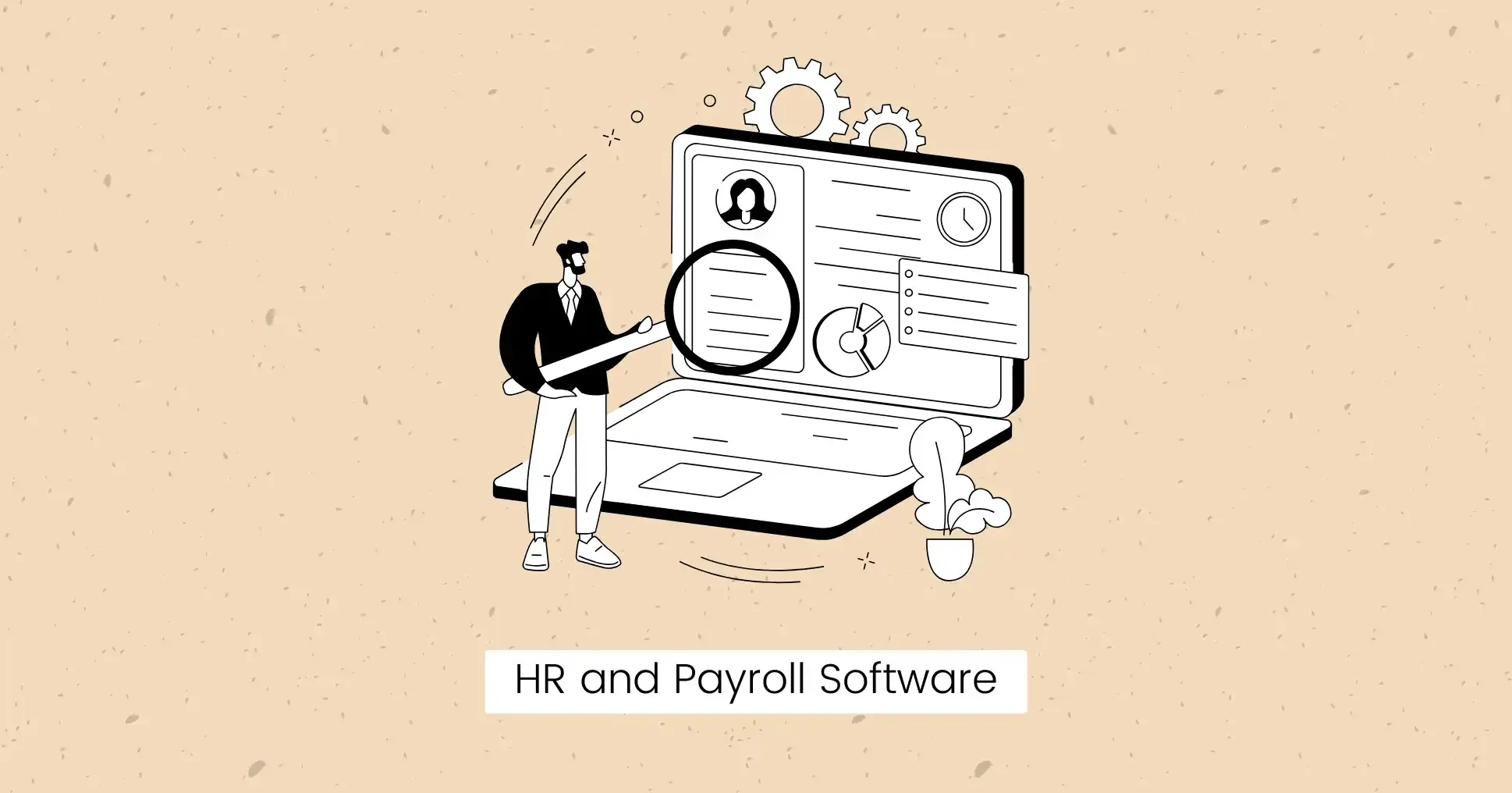
HR and payroll software is an effective tool for team management and processing paychecks.
It automates time-consuming tasks, allowing firms to focus on core operations instead of manually calculating salaries or keeping staff records.
Key Features:
- Employee data management such as contact info, job titles, and salary.
- Track working hours and manage leave requests.
- Automate pay calculation and tax deductions.
Benefits:
- Gather feedback to improve productivity.
- Facilitate employee recruitment and onboarding.
- Reduces the need for large HR teams.
- Self-service portals to empower employees and enhance satisfaction.
Best for:
- Service-based businesses
- Local retail stores
- Construction companies
Final Words
Outsource custom software development to experts and implement the best solutions to optimize business processes.
If you are still unsure why you should opt for a custom development process, read our Build vs Buy software guide.
Let's Start a Conversation
Experience our communication style firsthand. Schedule a discovery call to discuss your project and see how we can help bring your vision to life.

FAQs
How much does custom software development cost?
Custom software development costs vary depending on complexity, features, and development team expertise. It typically ranges from $20,000 to $500,000.
How long does it take to build custom software development solutions?
Building custom software usually takes 3 to 12 months, depending on the project’s complexity. Smaller solutions may take a few weeks, while enterprise software requires more time.